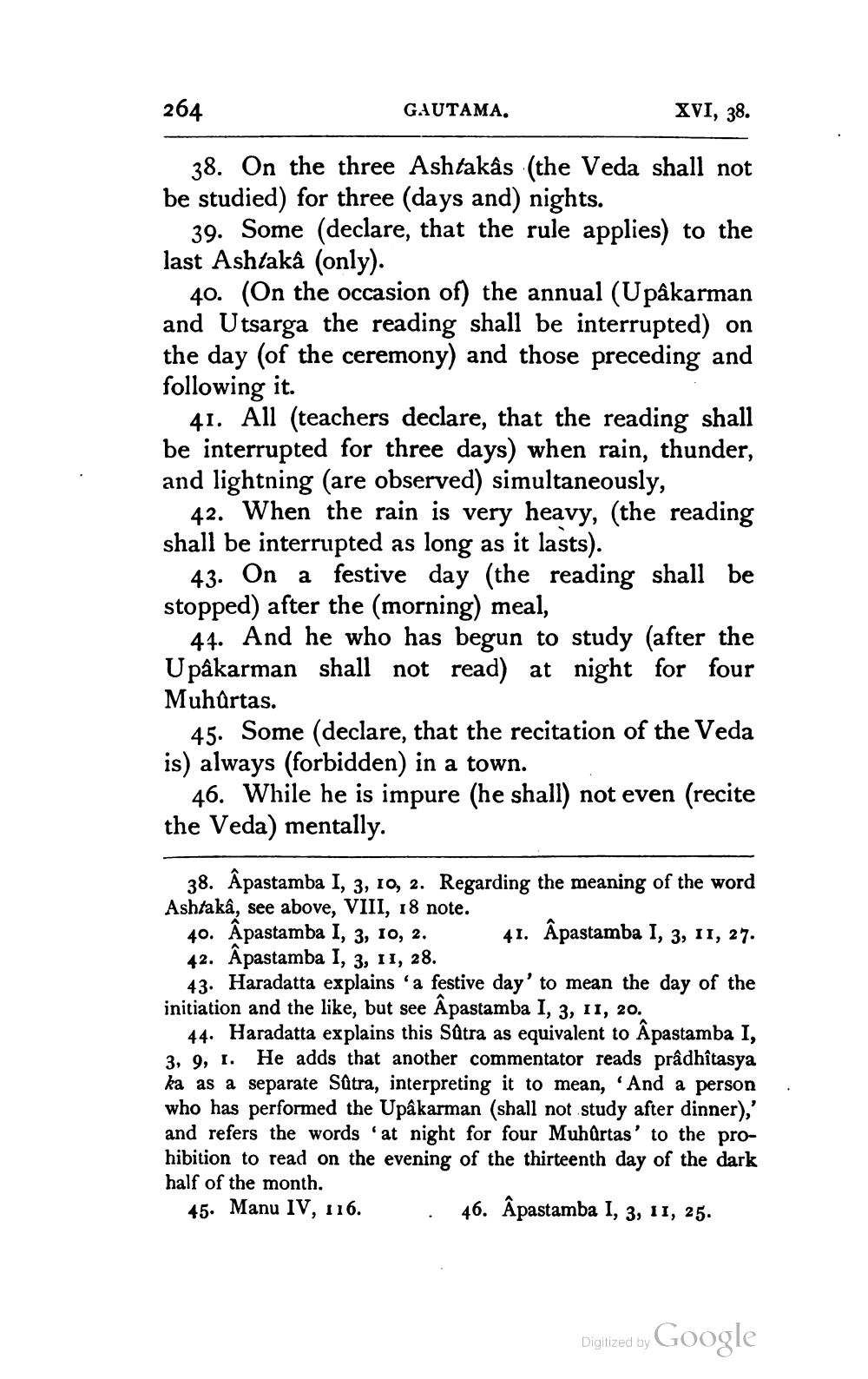________________
264 GAUTAMA.
XVI, 38. 38. On the three Ashtakâs (the Veda shall not be studied) for three (days and) nights.
39. Some (declare, that the rule applies) to the last Ashtakâ (only).
40. (On the occasion of) the annual (Upâkarman and Utsarga the reading shall be interrupted) on the day (of the ceremony) and those preceding and following it.
41. All (teachers declare, that the reading shall be interrupted for three days) when rain, thunder, and lightning (are observed) simultaneously,
42. When the rain is very heavy, (the reading shall be interrupted as long as it lasts).
43. On a festive day (the reading shall be stopped) after the (morning) meal,
44. And he who has begun to study (after the Upâkarman shall not read) at night for four Muhûrtas.
45. Some (declare, that the recitation of the Veda is) always (forbidden) in a town.
46. While he is impure (he shall) not even (recite the Veda) mentally.
38. Âpastamba I, 3, 19, 2. Regarding the meaning of the word Ashtaka, see above, VIII, 18 note.
40. Âpastamba I, 3, 10, 2. 41. Âpastamba I, 3, 11, 27. 42. Âpastamba 1, 3, 11, 28.
43. Haradatta explains'a festive day' to mean the day of the initiation and the like, but see Âpastamba 1, 3, 11, 20.
44. Haradatta explains this Satra as equivalent to Âpastamba I, 3, 9, 1. He adds that another commentator reads prâdhîtasya ka as a separate Sätra, interpreting it to mean, 'And a person who has performed the Upâkarman (shall not study after dinner),' and refers the words at night for four Muhûrtas' to the prohibition to read on the evening of the thirteenth day of the dark half of the month. 45. Manu IV, 116.
tamba I, 3, 11, 25.
Digized by Google




